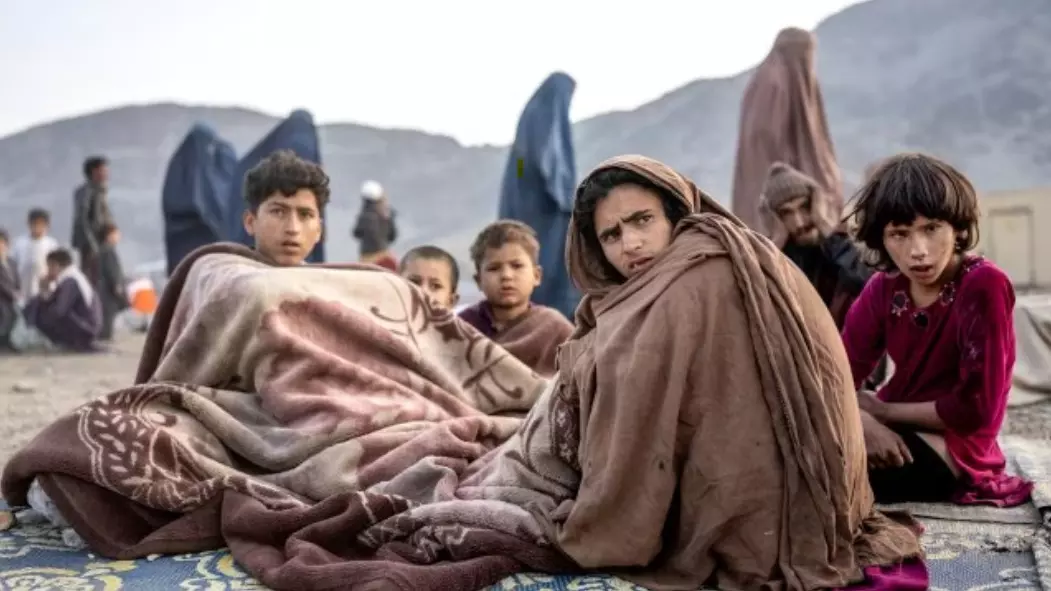Compassionate remedies
Owing to a range of factors, the refugee population is swelling across the globe — necessitating consensus over a humane and productive approach to deal with the same

On October 3, the interim government of Pakistan ordered all undocumented immigrants, nearly 1.73 million Afghan nationals, to voluntarily leave the country or face deportations. As per Pakistan government’s estimate, a total of 4.4 million Afghan refugees live in Pakistan. “We have given them a November 1 deadline,” Interior Minister Sarfraz Bugti said amid claims by Islamabad that 14 of 24 suicide bombings in the country this year were carried out by Afghan nationals. Pakistan has received the largest influx of Afghan refugees since the Soviet invasion of their country in 1979, reports Aljazeera. Afghan refugees also include thousands of people who escaped the Taliban's rule and who are at risk of persecution at home after the country fell to the Taliban two years ago following the withdrawal of American troops from Afghanistan.
The interim government of Pakistan announced the deportation of Afghan refugees after the militant group known as Tehrik-e-Taliban Pakistan (TTP), stepped up attacks in the last two years. Islamabad has long accused the Afghan Taliban — now Afghanistan's de facto government — of supporting the TTP, an accusation the Afghan Taliban denies.
The voluntary evacuation has been going on since the government gave an ultimatum to all unregistered foreign nationals to leave Pakistan by November 1. Nonetheless, on November 2, Pakistan's interior minister tweeted, along with a video of a group of Afghans boarding a bus, saying, "Today, we said goodbye to 64 Afghan nationals as they began their journey back home.". It is reported that till November 3, a total of 1,74,358 Afghan nationals left for Afghanistan. In addition to the voluntary repatriation, Afghan nationals imprisoned for involvement in petty crimes were also being deported. Over 500 prisoners from Khyber Pakhtunkhwa, Punjab and Islamabad were deported between November 1 and 4, reports The Indian Express.
Together with the refugee aid agencies in Afghanistan, the Taliban authorities have also established a commission to provide essential services to the returnees, including temporary accommodation, food, health services, and transportation to their destinations, reports CBS News.
Humanitarian crisis
The Human Rights Commission of Pakistan (HRCP) has expressed concern over the government’s decision to expel undocumented foreigners and urged the United Nations High Commissioner for Refugees (UNHCR) to ensure protection for Afghan refugees. On October 31, in a letter addressed to the UN High Commissioner for Refugees, HRCP Chairperson said the move to expel Afghans could “trigger a humanitarian crisis”. CBS News also reported that the United Nations officials said they were "extremely alarmed" by Pakistan's collective punishment of nearly 2 million Afghan refugees as winter approaches, and expressed concerns over rights violations of those at risk.
1951 Refugee Convention
The 1951 Convention provides the internationally recognised definition of a refugee, and outlines the legal protection, rights and assistance a refugee is entitled to receive. The United Nations (UN) High Commissioner for Refugees (UNHCR) serves as the ‘guardian’ of these documents. The core principle of the 1951 Convention is non-refoulement, which asserts that a refugee should not be returned to a country where they face serious threats to their life or freedom. The document outlines the basic minimum standards for the treatment of refugees, including the right to housing, work and education while displaced so they can lead a dignified and independent life.
Though the 1951 Refugee Convention, supplemented by its 1967 Protocol, has granted various legal protections to refugees, refugees are among the most vulnerable people in the world.
149 countries have agreed to provide refugees with protections under the 1951 Refugee Convention. Important non-signatory states in South and Southeast Asia include Pakistan, India, Bangladesh, Sri Lanka, Malaysia and Indonesia. In other regions of the world, non-signatory states include Eritrea, Libya, Mongolia and Cuba. China ratified the 1951 Convention and the 1967 Protocol, in September 1982. It has since been an active participant in the Executive Committee of the UNHCR.
Number of refugees rising globally
1951 Refugee Convention defines refugees as “someone who is unable or unwilling to return to their country of origin owing to a well-founded fear of being persecuted for reasons of race, religion, nationality, membership of a particular social group, or political opinion.”
At the end of 2022, as a result of persecution, conflict, violence, human rights violations or events seriously disturbing public order, 108.4 million people worldwide were forcibly displaced. In 1992, the corresponding figure was 45.57 million. Of the 108.4 million forcibly displaced people, an estimated 43.3 million (40 per cent) are children below 18 years of age. UNHCR estimates 117.2 million people will be forcibly displaced or stateless in 2023. This estimate was done before the outbreak of the Hamas-Israel war in Palestine. The table reveals, the number of refugees, internally displaced people and asylum seekers has risen steeply during the last three decades.
Refugee figures till mid 2023 indicate over half (52 per cent) of all registered refugees, in need of international protection, come from just three countries, namely, the Syrian Arab Republic (6.5 million); Afghanistan (6.1 million) and Ukraine (5.9 million). The major refugee destinations are: the Islamic Republic of Iran (3.4 million), Turkey (3.4 million), Germany (2.5 million), Colombia (2.5 million), Pakistan (2.1 million), and Bangladesh (1 million)
Refugee economy
Large numbers of refugees, many of whom are young and skilled in various activities, have created a refugee economy by offering wages at a lower rate compared to the host workers. As the numbers of refugees are rising, the importance of this economy is also growing. An OECD study (2016) titled ‘Refugees are not a burden but an opportunity’ reveals that ageing societies with a shrinking native working-age population, such as Germany’s, benefit from the arrival of younger refugees, who provide a demographic dividend. They can also support population numbers, and thus investment and growth. However, refugees’ ability to contribute to the economy depends partly on their characteristics, as well as on policies and institutions in the welcoming country.
As conflicts across the globe are rising, more and more people are getting displaced from their place of dwelling. With the emergence of a new world order, the condition may become worse. To tackle this complex situation, a new protocol suitable for the current century, for managing refugees in a more humane and productive way, has to be developed. Before that all the non-signatory states of 1951 Refugee Convention must ratify the same.
Views expressed are personal




